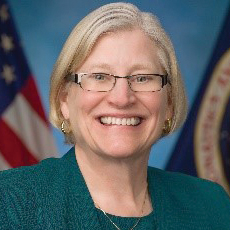Celebrating Resilience in the Face of Immense Challenges
PRESIDENT’S MESSAGE
February is here, which means it’s Black History Month. During this annual observance, we pay tribute to the contributions of African, African American, and Black men and women throughout history. While you’ll find examples of their significant impact in every sector, at IFT, we celebrate the accomplishments of Black scientists, innovators, and inventors whose work in various disciplines has had a lasting impact on the science of food and the global food system.
There are many Black scientific trailblazers who overcame adversity to transform the science of food. Perhaps the most well known is George Washington Carver, who is commonly recognized for his work with peanuts, but had many notable accomplishments as a scientist, educator, conservationist, artist, and humanitarian. Others, such as Norbert Rillieux, one of the earliest chemical engineers, Frederick McKinley Jones, a prolific inventor known for revolutionizing the preservation and transportation of food and other perishables, and Marie Maynard Daly, whose research helped us better understand how food and diet can affect the health of the heart and circulatory system, have made their mark on the science of food and paved the way for future innovation.
As I reflect on the contributions of these scientific greats, I can’t help but think of the immense challenges they must have faced and the curiosity and ingenuity that went into addressing these issues. For example, if Rillieux had not used his knowledge of steam engines and steam power to develop a safer, more effective way to evaporate moisture from cane juice at lower temperatures, sugar production might look very different today.
As the science of food community works to create a safe, nutritious, and sustainable food supply, there is no shortage of challenges. Add in a seemingly never-ending global pandemic, and the challenges seem to multiply. One area that has consistently made headlines throughout the pandemic is the food supply chain.
Walk into a grocery store and various products are missing from the shelves. Attempt to order food using an online grocery delivery or pickup service and items you are seeking may not be available. Venture out to a local restaurant or order food to go and some menus appear to have shrunk. As consumers, most of us have experienced at least one of these scenarios—and countless others—at some point in the last two years.
The situation looks a little different from the perspective of a food scientist or technologist. We have been in a constant state of flux for nearly two years. We’ve seen changes in our workforce in terms of reductions, illnesses, and worker shortages. We’ve had impacts to the availability of ingredients needed to develop products, requiring us to seek alternatives, modify products, and make tough decisions in terms of what we produce, what we pause, and what we eliminate. Our transportation and distribution channels have been affected, translating into shipping delays and higher costs to get our products to retailers, restaurants, and other foodservice outlets. Consumer interests and purchasing habits keep shifting. And all this change and uncertainty leaves very little room for true, breakthrough innovation.
While the pandemic has exposed vulnerabilities in the food supply chain, it has also illuminated the strength, resilience, and inventiveness of the science of food community. It has taken a Herculean effort to ensure the vast majority of people have access to safe, nutritious, and delicious food, and the efforts of our entire community are responsible for making it happen. Kudos to each and every one of you.
Our recent supply chain challenges have also taught us some important lessons. We’ve uncovered the depth of food insecurity in our communities. We’ve discovered significant interdependencies between climate change and the food supply chain. We’ve identified pinch points that must be addressed and revealed just how critical digitization is to advance predictive and adaptive management of the supply chain. I am confident we will collectively use these learnings to further strengthen our global food system and feed our global population in the months ahead.


